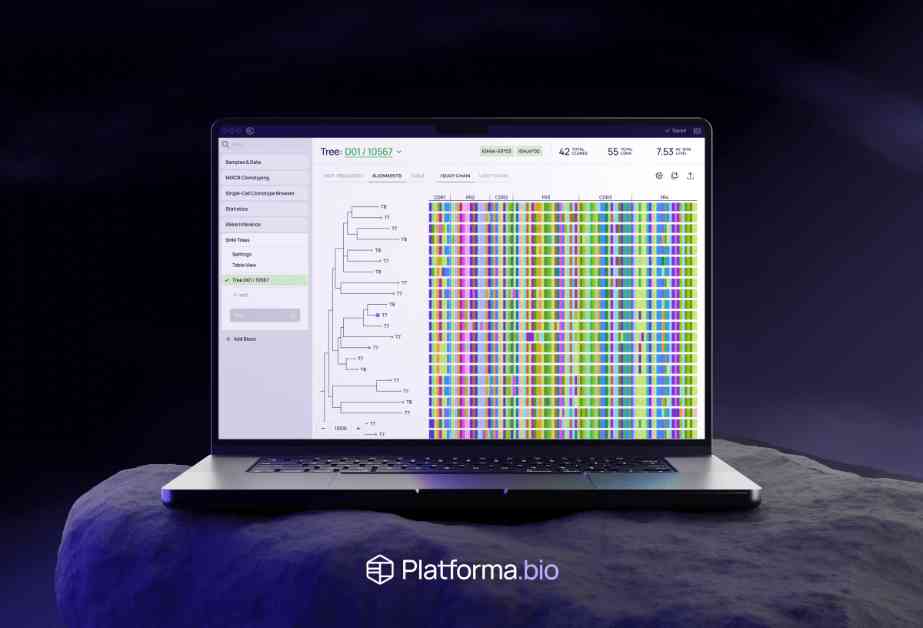MiLaboratories, a startup based in San Francisco with an R&D facility in Bilbao, Spain, has recently secured $10 million in funding to enhance its genomic research platform. The company has been working on a computational biology platform for the past four years to help biologists process, analyze, and aggregate their data more easily.
The platform incorporates features like data visualization and generative AI to improve usability. It also serves as a marketplace for other scientists to distribute specialized computation tools in the form of apps. MiLaboratories targets bioinformaticians – scientists with expertise in biology, computer science, and math.
CEO Stan Poslavsky describes the platform as a ‘no code’ approach for biologists, with an open-source SDK available for bioinformaticians to build real applications. The goal is to bridge the gap between the data generated by biologists and the data analysis needed for developing new therapies and drugs.
Poslavsky highlights the inefficiency in current data processing methods and the need for user-friendly tools in genomics research. MiLaboratories aims to free up bioinformaticians from mundane data processing tasks so they can focus on more complex algorithm development to advance scientific research.
The company recently unveiled its SDK, Platforma.bio, which allows third-party developers to contribute apps to the platform. The platform has been in alpha and beta testing with around 300 labs and 20 apps available so far. MiLaboratories plans to use the funding to invest in community building and expand its platform further.
The startup offers its software for free to academics and has a paid model for commercial users. They have around 100 paying customers, including big pharma companies like Moderna and Bristol-Myers Squibb. The revenue generated from commercial users helps reduce dependency on venture capital.
MiLaboratories faces challenges in processing the vast amounts of data generated by next-generation sequencing. Poslavsky emphasizes the importance of processing efficiency to avoid high costs associated with handling petabytes of genetic data. The company has developed patented technology to optimize calculations and improve efficiency by 10x compared to other computational workflows.
While there are competitors in the space like Seqera and open-source tools like Galaxy, MiLaboratories believes their platform offers a more accessible route to data insights for researchers. The company aims to focus on community engagement and app development in the coming year to further democratize access to complex genomic data.











